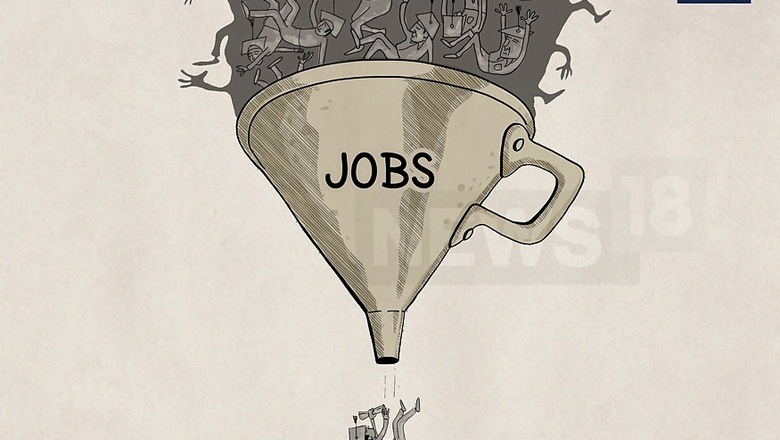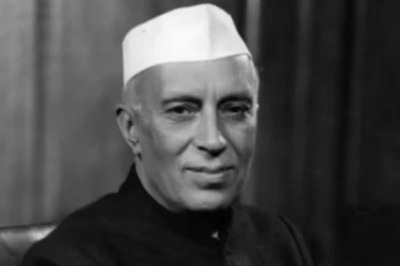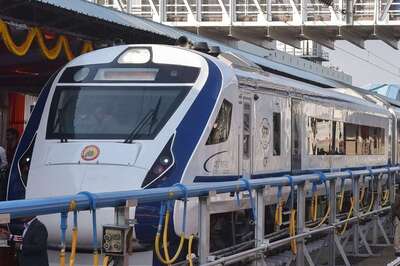
views
New Delhi: Large sections of fresh engineering graduates are fighting unemployment with the baggage of education loans going up to several lakhs. Settling for any and every job or digressing from B.Tech to other sectors is the new normal among these jobless techies.
Almost a year after passing out, Piyush Sain, a graduate from Heritage Institute of Technology in Kolkata, is yet to find a job. The bio-technology student appeared for campus placements in which only a handful companies turned up.
“It was surprising that I didn’t land a job. I was always an above average student. However, I was not the only one. Even now, I keep looking but they ask for experience. If you are not placed from the campus, then it gets really difficult,” said Sain.
While Sain is looking for core engineering jobs, Harshit Mehta, a Bennet College passout was quick to realise that he will not be landing a job during campus placements as number of companies turning up keeps diminishing every year. In order to save himself from the brunt of unemployment, Mehta had started preparing for MBA a year prior to graduating as a mechanical engineer.
“I had seen my seniors. A lot of them did not get jobs. I anticipated that there is no use sitting for placements and getting no job. Or even if I landed one, salary would be in the range of Rs 15,000 to Rs 20,000. Then I thought it would be better if I pursued MBA,” said Mehta.
The 22-year-old is part of a larger crowd not making use of his B.Tech degree.
Multiple engineering colleges that News18 visited had more and more students planning for courses not related to their graduation and ready to settle for non-B.Tech jobs.
“There is hardly a choice. Students need jobs. There are education loans to repay, families to support. The stiff competition for jobs becomes all the more tough when fewer companies turn up for placements. The number of companies has drastically come down in the last five years. With lesser companies, automatically jobs are far less,” said head of the placement cell at a private engineering college, under condition of anonymity.
Even premier engineering institutes like Indian Institute of Technology (IIT) have had to face unemployment woes. Several students in streams such as civil engineering could not land a job after studying at what is believed to be the top engineering colleges in the country.
Fired Employees
Nine months ago, Sumit Shrivastava, then an employee of Tech Mahindra, was asked to resign. “I was not expecting to lose my job, it had not been long since I had joined. I was given two options by them, to either resign and serve the usual notice period or leave within a week and take home a severance package,” he said.
Executive search firm Head Hunters India estimated the job cuts in IT sector to be between 1.75 lakh and 2 lakh annually for next three years due to under-preparedness in adapting to newer technologies.
“Contrary to media reports that 56,000 IT professionals likely to lose jobs this year, the actual job cuts will be between 1.75 lakh and 2 lakh per year in next three years, due to under-preparedness in adapting to newer technologies," Head Hunters India Founder-Chairman and MD K Lakshmikanth said while analysing a report submitted by McKinsey & Company at the Nasscom India Leadership Forum on February 17.
McKinsey & Company report had said nearly half of the workforce in the IT services firms will be "irrelevant" over the next 3-4 years.
McKinsey India Managing Director Noshir Kaka had also said the bigger challenge ahead for the industry will be to retrain 50-60 percent of the workforce as there will be a significant shift in technologies. The industry employs 3.9 million people and the majority of them have to be retrained.
"So, when we analyse these figures, it is clear that 30 to 40 percent of the workforce cannot be retrained or re- skilled. So, assume that half of this workforce can continue to work on old skills then balance will become redundant,” he said.
The chairman further explained that due to large number of engineering colleges propping up in the last decade, supply of B.Tech graduates has far outnumbered demand.
With 2.6 lakh seats, the country witnessed the largest fall in the number of engineering seats ever.
The 2003 UR Rao Committee had alerted the government of an excess supply of engineering graduates in the country. However, the recommendations of the report are yet to be formally adopted by the government.
The Rao committee had recommended a five-year moratorium on approvals for undergraduate technical institutions in states where the student intake exceeded the then national average of 150 seats per million population.
The number of vacant engineering seats has risen by approximately 35 percent in the last 5 years. However, new engineering colleges do not seize to mushroom.
As a lure for parents and students, almost all colleges promise 100 percent campus placements, however only four out of ten engineering graduates find jobs.
According to latest data hosted on AICTE’s official website, only 41.36 percent students who graduated from engineering colleges across India found jobs during placements for the academic year 2015-16. The numbers are further surprising because the passing percentage across all engineering colleges for that year was a high 78.67 percent. Therefore, more students passing examinations is not directly proportional to the likelihood of being employed.
While passing percentage in engineering colleges has been rising in the last five years, the number of placements has been hovering around similar figures with a dismal 38.17 percent in the academic year 2013-14.
According to a 2016 report by job skills credentialing company Aspire Minds, nearly 80 percent of engineering graduates in India are not employable. Most of them are forced to take up jobs in non-engineering fields or remain unemployed.
The major reason behind IT reducing the number of intakes is automation. Experts are of the opinion that four out of every 10 jobs globally would be lost due to this by 2021.
The lack of good infrastructure in colleges was elaborated by Nasscom President R Chandrashekhar.
“There is a perennial problem about the quality of (engineering) students. Over a period of time, the linearity between revenue and headcount growth in the IT sector has disappeared. Apart from global factors like changes in the economies of many countries and protectionism, there has been an increase in the levels of automation, and companies need to respond to these changes and hire accordingly.”




















Comments
0 comment